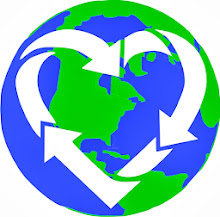Defining
a moment in human self-awareness for four hundred years, Reason
and Wonder: A Copernican Revolution in Science and Spirit, suggests a
way to move beyond the either/or choice of reason versus intuition. David Pruett wishes to resolve an age-old
debate at the root of much human dysfunction, including today's global
ecological crisis.
A
synthesis of David Pruett's past undergraduate work, "From Black Elk to
Black Holes: Shaping Myth for a New Millennium," Reason and Wonder provides
insights of modern science and the wisdom of spiritual traditions to
"re-enchant the universe." He takes three successive "Copernican
revolutions"—cosmological, biological, and spiritual—resulting in a more expansive
view of human potential as revolutionary as the work of Copernicus, Galileo,
and Darwin.
In Phenomenon of Man, Teilhard de Chardin writes about substance of the universe as spirit-matter He talks about life evolving as consciousness. The more complex the organism becomes the greater their awareness.
What distinguishes the artist poet mystic from the run-of-the-mill human being? It is that each of us share a common bond when we recognize humanity in everything and everywhere. Whether it is a stone, tree, etc. each has some type of a spirit which is silent more often that it speaks. Indigenous people have always observed this collective spirit shared by all objects whether they are humans animals plants, stones or whatever.
Teilhard like other great thinkers offered cautious optimism. He points to the cosmos synthesizing in a new paradigm of evolution where there's enlightening wariness coming not by choosing sides between religion and science but embracing wholeheartedly their complementary aspects science and religion fail not because either is wrong but because each is incomplete human beings. These two realities: the material world and the spiritual are one.
In Phenomenon of Man, Teilhard de Chardin writes about substance of the universe as spirit-matter He talks about life evolving as consciousness. The more complex the organism becomes the greater their awareness.
What distinguishes the artist poet mystic from the run-of-the-mill human being? It is that each of us share a common bond when we recognize humanity in everything and everywhere. Whether it is a stone, tree, etc. each has some type of a spirit which is silent more often that it speaks. Indigenous people have always observed this collective spirit shared by all objects whether they are humans animals plants, stones or whatever.
Teilhard like other great thinkers offered cautious optimism. He points to the cosmos synthesizing in a new paradigm of evolution where there's enlightening wariness coming not by choosing sides between religion and science but embracing wholeheartedly their complementary aspects science and religion fail not because either is wrong but because each is incomplete human beings. These two realities: the material world and the spiritual are one.
Below are various
quotes from this stimulating book:
Some day after
mastering the winds, the waves, the tides, and gravity, we shall harness
for God the energies of Love. And then, for the second time in the history
of the world, man will have discovered fire.--Teilhard de Chardin (Epilogue,
p. 351)
A human being is part
of the whole, called by us “universe,” a part limited in time and space.
He experiences himself, his thoughts, and feelings, as something separate
from the rest--a kind of optical delusion of his consciousness. This
delusion is a kind of prison for us, restricting us to our personal
desires and to affection for a few persons nearest to us. Our task must be
to free ourselves from this prison by widening our circle of compassion,
to embrace all living creatures and the whole of nature in its beauty.
Nobody is able to achieve this completely, but the striving for such
achievement is in itself a part of the liberation and a foundation for
inner security.--Albert Einstein (Epilogue,
p. 349)
The labor of seaweed as it concentrates in its tissues the
substances scattered, in infinitesimal quantities, throughout the vast
layers of the ocean; the industry of the bees as they make honey from the
juices broadcast in so many flowers--these are but pale images of
the ceaseless working-over that all the forces of the universe undergo
in us in order to reach the level of the spirit.--Teilhard de Chardin
(Chapter
17, Pale Images, p. 335)
.

No comments:
Post a Comment